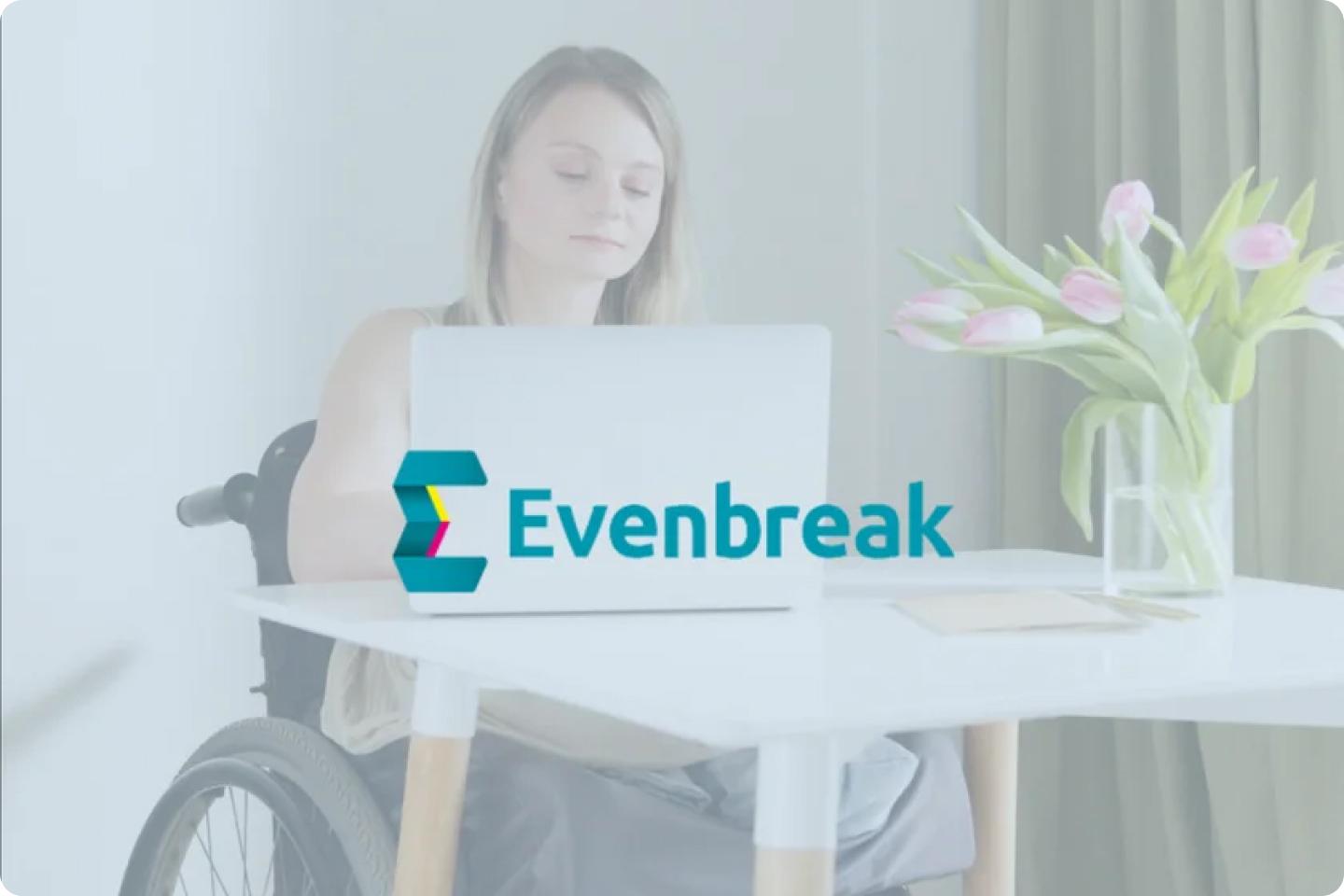All Articles
3 min read
Get That Dream Job, Asking for What You Want

Written by
Jane Hutton, CEO/Founder of Evenbreak
Published on
July 2, 2024
Finding suitable employment can be challenging for many, but for disabled individuals, navigating the recruitment process and securing the right role often involves additional hurdles. However, asking for what you need and understanding your rights can significantly improve your chances of landing that dream job. Here’s how you can effectively advocate for yourself in the workplace and during the hiring process.
Understanding Your Rights Under the Equality Act 2010
The Equality Act 2010 mandates that employers provide reasonable adjustments to help disabled candidates access the recruitment process on an equal basis. While the term “reasonable” can be open to interpretation, it covers a broad range of adjustments, including:
- British Sign Language Interpreters: Essential for candidates who are deaf or hard of hearing
- Additional Time: Extra time to complete tests or answer questions can level the playing field
- Assistive Technology: Providing necessary technology or software for assessments
- Accessible Interview Venues: Ensuring the interview location is accessible for individuals with mobility issues
- Advance Knowledge of Questions: Sharing the types of questions to be asked can help candidates prepare more effectively
Don’t hesitate to request these adjustments. They are your right, and they can make a significant difference in showcasing your true abilities during the recruitment process. For instance, if you typically use assistive technology for computer tasks, it should be available during any computer-based assessments at interviews.

Making the Most of Access to Work Support
When you secure a job offer, you can request reasonable adjustments to carry out your job effectively. The Access to Work scheme offers support, including:
- Equipment Adaptations: Modifying the equipment you use to better suit your needs
- Special Equipment or Software: Providing tools or software that accommodate your disability
- Communication Support: Services like British Sign Language interpreters, lip speakers, or note-takers
- Travel Assistance: Adaptations to your vehicle, taxi fares, or a support worker to help you commute
- Workplace Assistance: A support worker or job coach to assist with your duties
- Mental Health Support: Services tailored to those with mental health conditions
- Disability Awareness Training: Educating your colleagues about your disability and how they can support you
- Relocation Costs: Covering the cost of moving your equipment if you change location or job
These adjustments are designed to facilitate your work environment and help you perform at your best. Ensure you discuss and request these as part of your onboarding process.
Exploring Flexible Work Options
Many disabled individuals benefit from flexible work arrangements, such as part-time hours, job sharing, or remote working. Unfortunately, most job listings still advertise full-time positions. However, this doesn’t mean you can’t inquire about flexibility. Here’s how to approach it:
Job Sharing
If you find a role that suits your skills but is listed as full-time, consider asking if it can be divided into a job share. This arrangement can split the responsibilities between two or more people, allowing you to work part-time.
Reduced Hours
Enquire if the position can be adapted to fewer hours. Many roles can be performed effectively without requiring a traditional 9-to-5 schedule.
Remote Work
Ask if some or all of the tasks can be performed remotely. This can be particularly beneficial for those who need a controlled environment or have difficulty commuting.
The worst that can happen is the employer says no. However, even if the answer is no, you’ve brought your skills and needs to their attention. Employers may appreciate your initiative and consider you for future roles or working patterns that fit your needs.

Tips for Advocating for Yourself
- Know Your Needs: Understand what adjustments will help you perform effectively
- Communicate Clearly: Be specific about your requirements when discussing adjustments with potential employers
- Be Persistent: Keep advocating for yourself, even if it feels challenging
- Utilise Resources: Platforms like the Evenbreak job board and the Career Hive can connect you with inclusive employers actively seeking to attract disabled candidates
Conclusion: What Do You Have to Lose?
Asking for what you need in the job search and workplace is crucial. It empowers you to demonstrate your capabilities fully and ensures you have the tools to succeed. Remember, self-advocacy is a vital part of achieving professional success. For more tips and opportunities from inclusive employers, check out the Evenbreak job board and the Career Hive. With the right adjustments and a proactive approach, you can secure the job you’ve always dreamed of.
Evenbreak is an award-winning not-for-profit specialist job board run by disabled people for disabled people
Related Articles
ESA and Permitted Work
Top Tips for Finding Work if you are Disabled
Positive Talk about Disabilities in the Workplace
